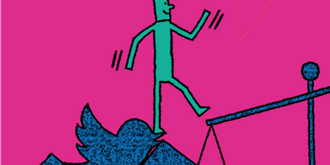As part of the Festival of Debate, in partnership with Media North
In July 2021, Home Secretary Priti Patel published a consultation paper with proposals to reform the Official Secrets Act. At the height of the pandemic the consultation received scant attention in the media. The proposed bill includes a major crackdown on 'unauthorised disclosures', or leaks of sensitive information. Much hard-hitting investigative journalism is based on such leaks.
The bill equates investigative journalism with spying, and is a direct threat to the ability of journalists and their sources to make public their information about wrongdoing. Indeed the proposals want to eliminate a 'public interest' defence. It says this would 'undermine our efforts to prevent damaging unauthorised disclosures'. The new law should also be seen as part of a broader project on the part of Priti Patel’s Home Office to cut down civil liberties by legislative means.
An impressive panel of experts provide the details on the threats contained in the proposals, and indicate what we can do to challenge them.
Speakers:
- Annie Machon was an intelligence officer for the UK security service MI5, before resigning to blow the whistle on the crimes and incompetence of British spies. She is now a media pundit, writer and international public speaker on a variety of issues, including the wars on terrorism, whistleblowers, drugs and the internet.
- Michelle Stanistreet is general secretary of the National Union of Journalists. The NUJ has a proud history of defending a free press and the public's right to know, and has consistently defended NUJ members who have been threatened with official secrets legislation.
- Martin Bright has over 30 years of experience as a journalist, working for The Observer, The Guardian and The New Statesman, among others. He broke the story of Iraq War whistleblower Katharine Gun, which inspired the movie Official Secrets (2019), starring Keira Knightley. He is now at Index on Censorship.
- Stephen Dorril is an historian, researcher and investigative journalist, and has been researching the activities of the British security and intelligence services for nearly 40 years. He has written several books, including 'Smear! Harold Wilson and the Secret State' and is currently finishing a book on Northern Ireland which deals with questions about the role of secrecy and deliberate government obstruction in censoring research of The Troubles. He is an Honorary Research Fellow at the University of Leicester.

